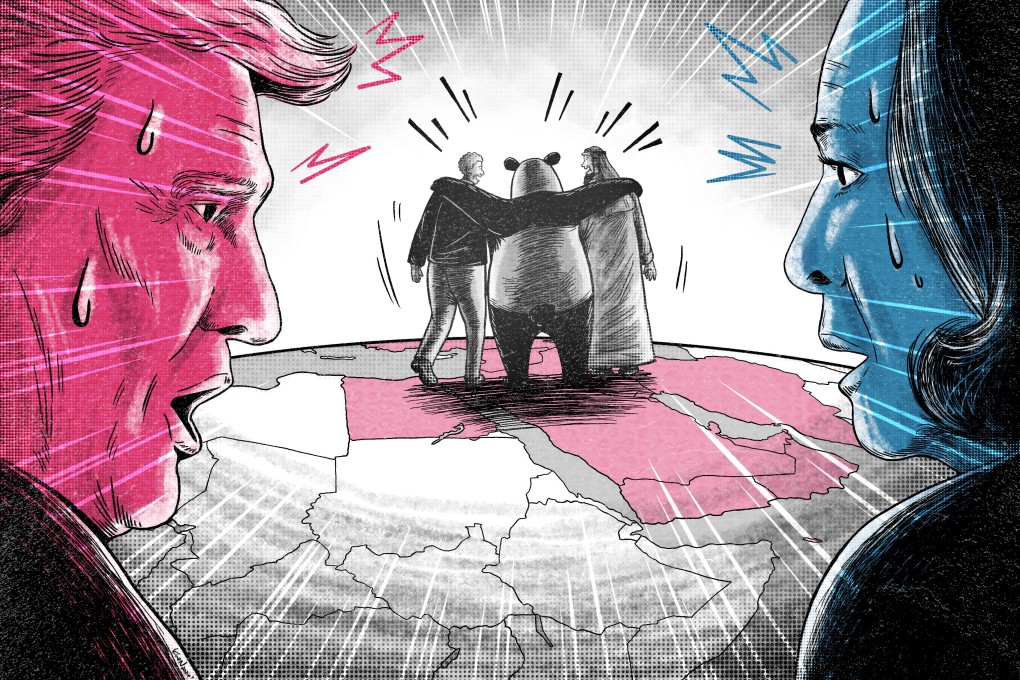Can China fill the gap as next US president tackles loss of influence in Middle East?
Analysts say both Donald Trump and Kamala Harris will have to come to terms with Beijing seeking a greater role as Washington loses sway

It may even have a direct impact on the result of the presidential election with anger at the White House’s pro-Israel stance threatening Vice-President Kamala Harris’s prospects of taking Michigan, a key swing state that has a significant proportion of Arab-American voters.
But many observers believe that no matter what the result, the next president will face the stark truth that US influence in the region will be increasingly limited and it will feel an increasing need to focus more resources on the Asia-Pacific and its growing rivalry with China.

John Calabrese, a senior fellow at the Middle East Institute in Washington, noted that the policy differences between a Donald Trump administration and a Harris administration might be smaller than many expect. He said that both would be constrained by the same reality: the narrowing scope of US influence in the region.
